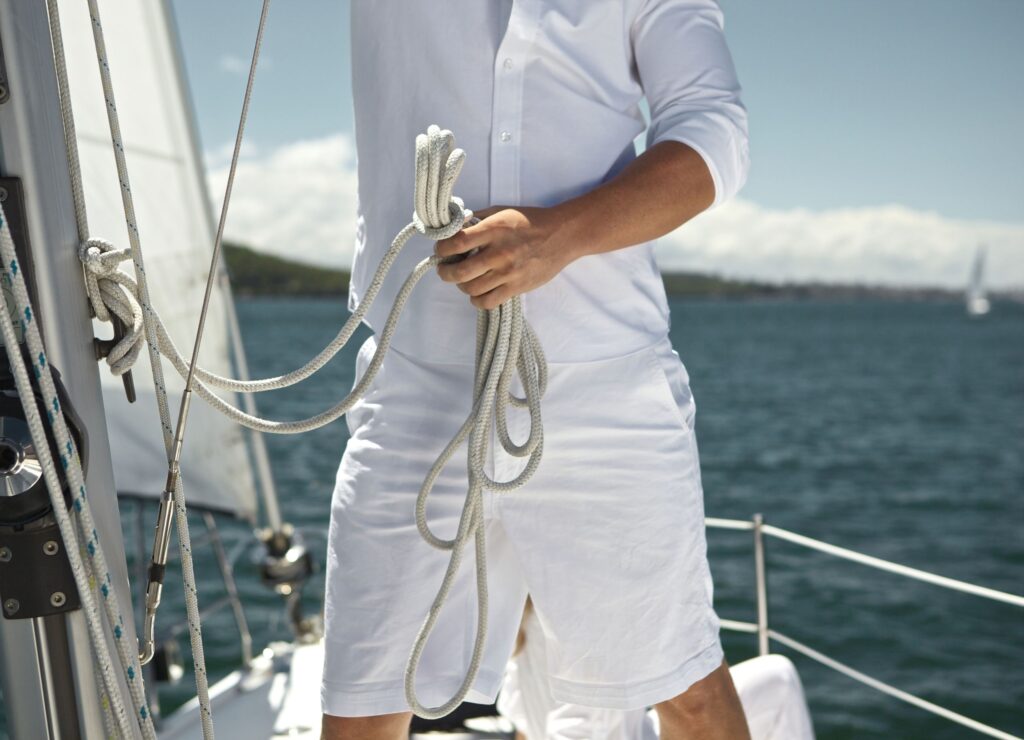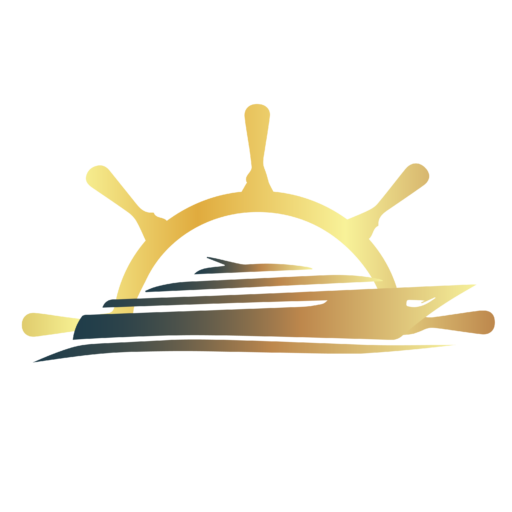With almost 25 years in the industry, I’ve witnessed first-hand the evolving landscape of maritime training. In the past, there weren’t all these courses that you needed to do to get into the yachting industry. In fact, when I started as a deckhand, 20 years ago, I started with no courses or qualifications under my belt, just my willingness, determination and strong work ethic. Unfortunately, things have changed a lot since then and you are required to have done certain courses before working at sea. That being said these courses are not only beneficial to you as they prepare you for life onboard a yacht but benefit the industry as a whole with regard to ship safety and security.
Our goal is to provide you with clarity on what courses are truly needed for an entry-level position in the industry and to highlight the skills that will better serve you than spending thousands of rands on unnecessary courses.
For Deckhands we suggest STCW 10 with Designated Security Duties (DSD) | RYA Powerboat Level 2 (PBL2) | RYA Personal Watercraft (PWC) | Seafarer Medical Certificate

For Stewardesses we suggest STCW 10 with Designated Security Duties (DSD) | Food Safety Level 2 | Seafarer Medical Certificate and if your budget allows for it, we recommend RYA Powerboat Level 2 (PBL2) as we are seeing this becoming a requirement for all crew.

In addition, we’d strongly suggest a role-specific Deckhand or Stewardess course as these courses provide invaluable insights and understanding of the role, the duties and responsibilities and how to perform them.
It can be argued that a VHF radio license is technically required for a deckhand but again, this is budget permitting, if you can afford to do it then by all means, if you can’t, then look to do it at a later stage.
We were once asked by a parent why our packages are “so short and so cheap”, surprised by this question, we did some research into this, comparing our packages with other schools in the Western Cape and we found that many of them are promoting and selling a lot of unnecessary courses. Let’s just be clear, you do not need to spend months and thousands of rands getting qualified. It is not essential for a stewardess to have a PWC license unless she plans on pursuing a dual Deck/Stew role or that a deckhand needs to do a Food Health and Safety and a Barista course. Starting off in the industry you definitely don’t need all the fancy sailing courses. You will have plenty of time to do these as you prepare and progress through the ranks and by that stage, you will be earning a substantial amount of money and will comfortably be able to pay for them.
Having said that, yes there are some other courses that can be beneficial and would definitely look good on your CV, but again, it comes down to budget. Bear in mind that the costs to join this industry don’t stop when you have completed your courses. The true costs start kicking in after that. Your budget needs to include visa, flights, accommodation and living costs while scouring the recruitment portals and beating the docks (dockwalking) abroad.
Specialist Skills and Experience
Having a specialised skill in the yachting industry, such as carpentry, diving, massage therapy, or watersports instruction, significantly enhances your CV and sets you apart from other candidates. These skills not only demonstrate your versatility and ability to contribute to various onboard activities but also highlight your commitment to providing exceptional guest experiences.
So rather than amassing numerous courses and certificates that won’t really benefit you in the beginning, focus on developing or enhancing a particular hobby or skill that can better serve your career and add value onboard a vessel.
Experience is another major factor. Whether it’s land-based jobs, internships, or day work on yachts, any hands-on experience can significantly enhance your employability.
What will truly set you apart in the industry are your skills, experience, presentation and attitude – this is often the deciding factor as to whether a crew member is hired or not. Remember, the key to success lies in a solid foundation of essential courses, experience, skills, dedication and maintaining a positive attitude.
Career Progression and Continuous Learning
A maritime career is a journey of continuous learning. While basic courses are sufficient to start, your career will require further training and certification as you progress. Once you have established yourself and built some tenure in the industry, you can then start looking at the additional courses and qualifications you need to advance your career. For now, focus on gaining experience and demonstrating a strong work ethic as this will naturally open doors to advanced courses and higher positions in the future.
We’re here to help
If you’re uncertain about which courses to take or need guidance on starting your maritime career, we invite you to book a consultation with us. Our experienced team can help you navigate your options and set you on the right path.


Recent Comments